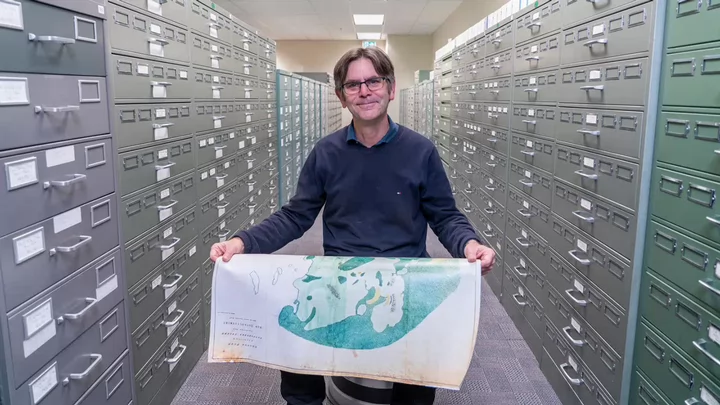Faculty Success with John Lutz: Exploring the ideas laboratory
August 02, 2022

UVic Libraries is pleased to celebrate faculty success with a series of interviews featuring researchers and their recent collaborative projects.
Professor John Lutz, of UVic’s History Department, has worked with UVic Libraries to create a number of valuable, free digital collections related to the history and politics of British Columbia.
John was instrumental in securing permission to digitize and openly share Victoria’s earliest daily newspaper, The British Colonist, with long-standing contributions from the Irving K. Barber Learning Centre's BC History Digitization Program. He also helped the libraries to obtain permission to openly share many important BC historical maps including the Land Title Survey Authority historic maps, early BC maps, and Hudson’s Bay Company maps.
John is currently working closely with UVic Libraries and the Humanities Computing and Media Centre on a project to “decolonize” the Colonial Despatches, which is the original correspondence between the British Colonial Office, and the colonies of Vancouver Island and British Columbia.
What is your favorite place in UVic Libraries and why?
So many! Forced to choose I would probably say the Special Collections & University Archives where I can interact with amazing historical documents. But the Digital Scholarships Commons is another contender, an exciting venue where my students and I have been exposed to cutting edge digital tools. I love the light, and furnishings in the stairwell of the Mearns addition to the library. And although not originally convinced, I now really see how the BiblioCafe added energy and draws people to the library. What it lacks in ambiance it makes up for in sustenance and conviviality.
What is your favorite LC subclass (the first two letters at the beginning of a call number range) and why?
A hard choice. I spend a lot of my time in the FC section which is Canadian history, but I travel the world through exploration narratives in G420 and discover the myriad of Indigenous cultures in the E98 and E99 sections.
What is the most exciting or interesting experience that you’ve ever had in a library or archive?
Probably in the British Library in London when I filled out a call slip for the John Webber paintings from the 1778 James Cook expedition around the world including British Columbia’s west coast. About 10 minutes later two giant portfolios were wheeled out of storage and I had in front of me some famous, other unknown, detailed, meticulous images that were taken of Indigenous people near here almost 250 years ago. That was stepping into a time machine.
Is there anything else that you’d like to tell us?
The library is the heart of the university. Much of the knowledge of the ages is housed within its walls or accessed through its portals; we can combine that knowledge with real world experience and create wisdom.
Properly used, it is a perpetual motion, totally renewable, wisdom-generating machine. And for us, in the humanities, it is also the ideas laboratory where we test, refine and generate novel theories and analytical approaches.
Celebrate the success of UVic faculty: read more.
